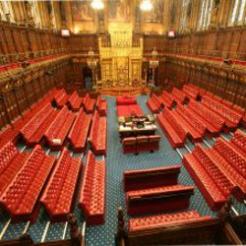International aid organisations have criticised today’s House of Lords Economic Affairs Committee report on development aid, which recommends that the government abandons its pledge to spend 0.7 per cent of gross national income on aid from 2013.
Max Lawson, head of policy at Oxfam, said: “Reneging on our aid promises would deprive millions of the world’s poorest people of life saving medicines, clean water and the chance to go to school,” he said.
“The Committee is guilty of presenting a false choice between delivering high quality aid and increasing its quantity – the government can and should do both. Ministers deserve real credit for keeping our commitments to the poorest during these tough times – it is one of the things that allows Britain to hold our head high on the world stage.”
Adrian Lovett, Europe executive director of global advocacy and campaigning organisation One, said that the report shows that the peers "have a view of aid that is stuck in the 1980s."
He said: "If we maintain our commitment to the 0.7 per cent aid target, as the Chancellor and Prime Minister have promised to do, British aid will provide over 80 million children with vaccines against life-threatening diseases, saving an estimated 1.4 million lives. The Lords committee has chosen to ignore the evidence of the impact UK aid will have."
And ActionAid's Melanie Ward's reacted along similar lines, saying: "It appears that this House of Lords Committee is entirely detached and out of touch from the reality of poverty in our world today.
“0.7 per cent is globally agreed as a fair contribution from the world's richest countries to help end poverty. We all made this promise and shouldn't break it now."
The 0.7 per cent target was agreed by the UK and other donor nations at the UN in 1970, but only a small number have reached it.
Dfid responds
Meanwhile, Secretary of state for Dfid Andrew Mitchell insisted that the government will remain devoted to helping the impoverished worldwide, saying: "The British government makes no apologies for sticking to its commitments to the world's poorest people.”
He continued: “We welcome the Committee's ringing endorsement of the tough reforms the Coalition government has made to get maximum value for money from British aid.
"Spending less than one per cent of our national income on aid - an internationally agreed target - will create a safer and more prosperous world for the UK. And it will get 11 million children into school, vaccinate 55 million children against preventable diseases and stop 250,000 newborn babies dying needlessly. Going back on this promise would cost lives."
Details of the report
The report from the Lords Economic Affairs Committee strongly opposed the government's recent plans to make the 0.7 per cent target legally binding.
It concluded that aid budgets should be dictated by outcomes, rather than by arbitrary spending figures.
The Comittee's chairman, Lord MacGregor of Pulham Market, said: “We received extensive evidence of the impact and effects of development aid, and we recommend various ways in which these can be more intensively pursued.
“The Committee wholeheartedly supports humanitarian aid – our report does not propose any changes to that."
“We believe that development aid should be judged by the criteria of effectiveness and value for money, not by whether a specific arbitrary spending target is reached.”
Elsewhere in its report, the Committee calls for Dfid to do more to tackle corruption. Dfid detected only £1.2m of fraud in its £7.7bn budget in the year to March 2011 – a figure the Committee described as “paltry and implausibly low”.
The government spent 0.56 per cent of gross national income on aid in 2010.










